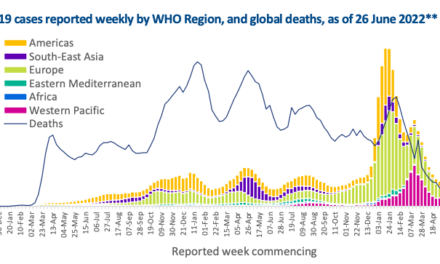In a stern warning against the rampant misuse and overuse of antibiotics, nephrologists have highlighted the severe public health consequences, including antimicrobial resistance, increased healthcare costs, and reduced effectiveness of antibiotics. They underscore the urgent need for judicious use and education to address this pressing issue.
According to experts, uncertainties surrounding antibiotic use, overprescription, incomplete treatments, and a lack of regulation contribute to the misuse of antibiotics, fueling the global crisis of antimicrobial resistance. Internal organs such as the kidney, liver, and nervous system are particularly vulnerable to the irrational use of antibiotics, warn nephrologists.
Dr. MV Rao, a nephrologist at the Asian Institute of Nephrology and Urology (AINU) in Hyderabad, highlighted the widespread sale of antibiotics without prescriptions as a significant contributor to overuse and misuse in India. “The widespread overprescription of antibiotics and the common practice of not completing the full course of antibiotics significantly contribute to kidney damage and the rise of antibiotic-resistant infections,” added Dr. PS Vali, another nephrologist.
Certain antibiotics, particularly when used inappropriately or in high doses, can directly damage the kidneys, according to Dr. B. Srikanth. He emphasized that individuals with pre-existing kidney conditions or genetic predispositions are particularly vulnerable.
Moreover, nephrologists warned about life-threatening urinary tract infections caused by multidrug-resistant microbes that can lead to acute kidney injury. Such infections can quickly escalate to blood sepsis, shutting down the kidneys within hours.
To address these concerns, nephrologists have called for various measures to safeguard the community from the adverse effects of irrational antibiotic use. They stress the importance of boosting public understanding of correct antibiotic usage and implementing antimicrobial stewardship programs to enhance the effective use of antibiotics.
These programs aim to guide healthcare professionals in choosing the right antibiotic, dosage, duration, and administration method to improve patient outcomes and minimize microbial resistance. Additionally, strict regulations against selling antibiotics without prescriptions are deemed necessary.
Healthcare providers are urged to adhere to established guidelines for antibiotic prescriptions, avoiding unnecessary prescriptions and ensuring correct dosage and duration. Furthermore, there is a pressing need for research and development of new antibiotics to reduce reliance on existing ones and mitigate resistance risks.
These measures necessitate a collaborative effort from healthcare professionals, policymakers, the pharmaceutical industry, and the public. Customized strategies tailored to the specific needs and conditions of different regions and healthcare systems are crucial in combating antibiotic overuse and safeguarding public health.











